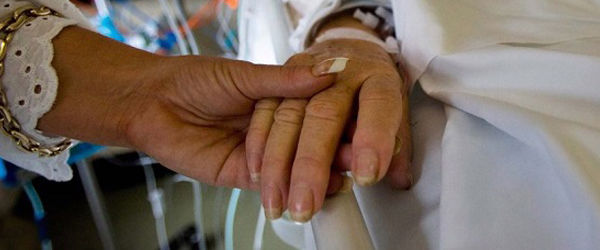“Cosmos, A Spacetime Odyssey” has recently completed its run on Fox and National Geographic Channel and was, for the most part, riveting television. But it did leave me with wanting less — less bashing of my faith and more science.
The series’ host, astrophysicist Dr. Neil deGrasse Tyson, opened the program with an ode to Carl Sagan and his seminal series “Cosmos: A Personal Voyage.” This version is a continuation of sorts and its debt to Sagan is reinforced with the inclusion of a quote from Sagan, “The cosmos is all that is, or ever was, or ever will be.” That kind of quote almost needs an “amen” at the end.
Carl Sagan was a profoundly vocal and convinced non-believer in all things prime mover, let alone a personal God. That’s OK. I do not require that those teaching me science or those entertaining me on television be in lockstep with me in all things Catholic.
Although I only grasped about five percent of the science discussed in the first episode of “Cosmos,” I did comprehend 100 percent of the show’s animus toward religion in general and the Catholic Church in particular.
There I was, minding my own business in my own home and all I sought was to be amazed at the science of the universe. It started out promising as Dr. Tyson put the creation of the universe in the context of a single calendar year.
Using this device, I learned that if the Big Bang took place on Jan. 1, the entire history of mankind takes up the last couple of seconds of Dec. 31 of that same encapsulated year.
I was even feeling a little smug about myself and my Church as I watched the first episode. We were not like those “Bible thumpers” who insist on a word-by-word, letter-by-letter literal translation of Scripture. Personally, I’m quite comfortable with the billions of years timetable Dr. Tyson and other scientists stipulate as the age of the universe since, what is time to God anyway?
After expertly navigating around the slightly jarring opening of the show and its declaration of non-belief via the insertion of the late great Carl Sagan, the show literally stopped, taking time out from contemplating the Earth’s position in the Virgo Super Cluster and instead, regaled the audience with animation in the graphic novel mode.
This clumsy disruption was even more disconcerting when I grasped its subject matter; the heroic tale of Giordano Bruno, a 16th Century heretic if you’re Catholic but a martyr of science if you are the makers of “Cosmos: A Spacetime Odyssey.”
Suddenly, my science program detoured, with cartoon Catholic prelates drawn as super-villains and speaking with stilted baritone voices. The focal point of their evil intentions: none other than the late and not so great Giordano Bruno, mischaracterized by “Cosmos” as a man of profound courage and scientific integrity who was brave enough to stand up to a rigid, superstitious and unscientific religious cabal.
Bruno guessed, and I do mean guessed, that the earth revolved around the sun. That is the reason, according to “Cosmos,” the Church persecuted him since this scientific theory, if true, somehow would have destroyed their mythical Scripture-based template.
I Googled as fast as I could and discovered Giordano Bruno was born five years after Copernicus had died. Thanks to my Catholic high school science teachers, I knew who Copernicus was — the real father of heliocentrism.
Those same teachers did not tell me anything horrible had happened to Copernicus so maybe they were under Vatican dictums to keep us in the dark. Thanks to Google, again I looked it up to see what ghastly torture had befallen Copernicus at the hands of the superstitious power structure of the Catholic Church.
I mean, if they were so hard on Giordano Bruno who made a claim with absolutely no scientific basis, what had the Church done to Copernicus who preceded him by decades and even had the effrontery to employ the highest math at his disposal to support his theory?
The answer was that more than one bishop supported Copernicus. Pope Clement VII and one of his major works dedicated to Pope Paul III publicly praised Copernicus’ theory.
Giordano Bruno denied big theological truths like the Trinity, the virgin birth and, in the 16th century, when the Church was up to her eyeballs in theological mayhem, it reacted to such things harshly.
Yes, Bruno was executed and the defense of that fact is hard to construct. “Cosmos” didn’t mention Trinitarian doctrine being concerned solely with describing the Church then, and by implication, the Church today as being science’s nemesis.
Nothing could be further from the truth, and the easiest place to start collecting empirical data contrary to the hypothesis presented in “Cosmos” is by looking at the litany of famous scientists who had day jobs as Catholic priests — like the progenitor of genetics, Father Gregor Mendel, and the author of the Big Bang Theory itself, Msgr. Georges Lemaitre.
Science never was and never will be the enemy of truth or the universal deposit of faith. Faith, when combined with serious and open-minded scientific curiosity, is always an opportunity to marvel ever deeper into the world created by, and if I may re-write Carl Sagan, He who was, is now and ever shall be…Amen.
Robert Brennan has been a professional writer for more than 30 years, including many years in the television industry. He has been a contributing writer for the National Catholic Register for many years and has also been published in Our Sunday Visitor and This Rock.

